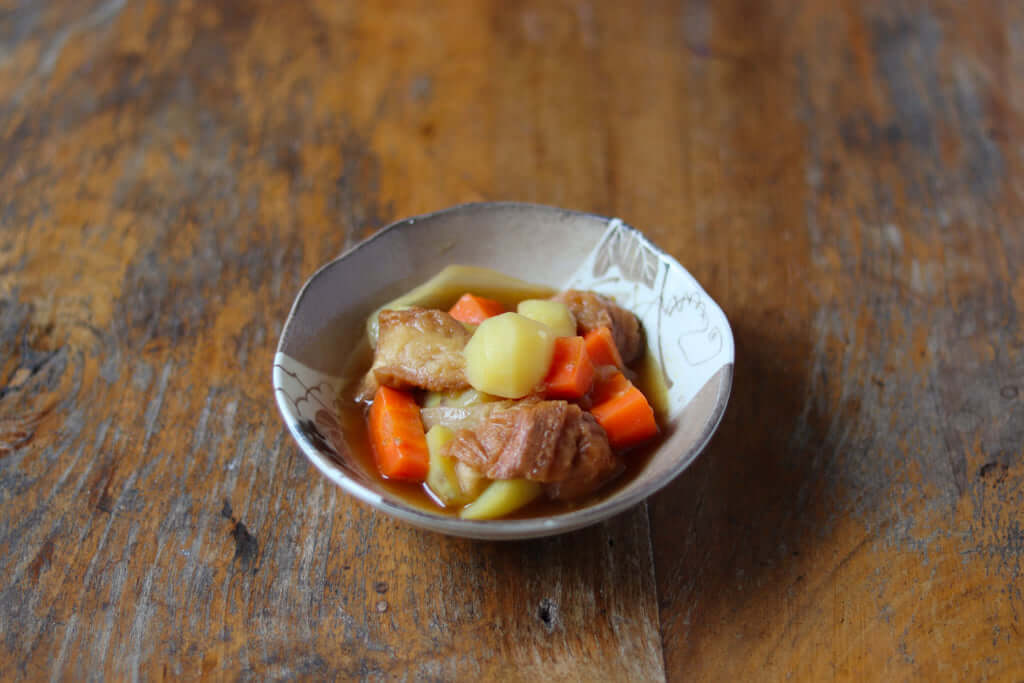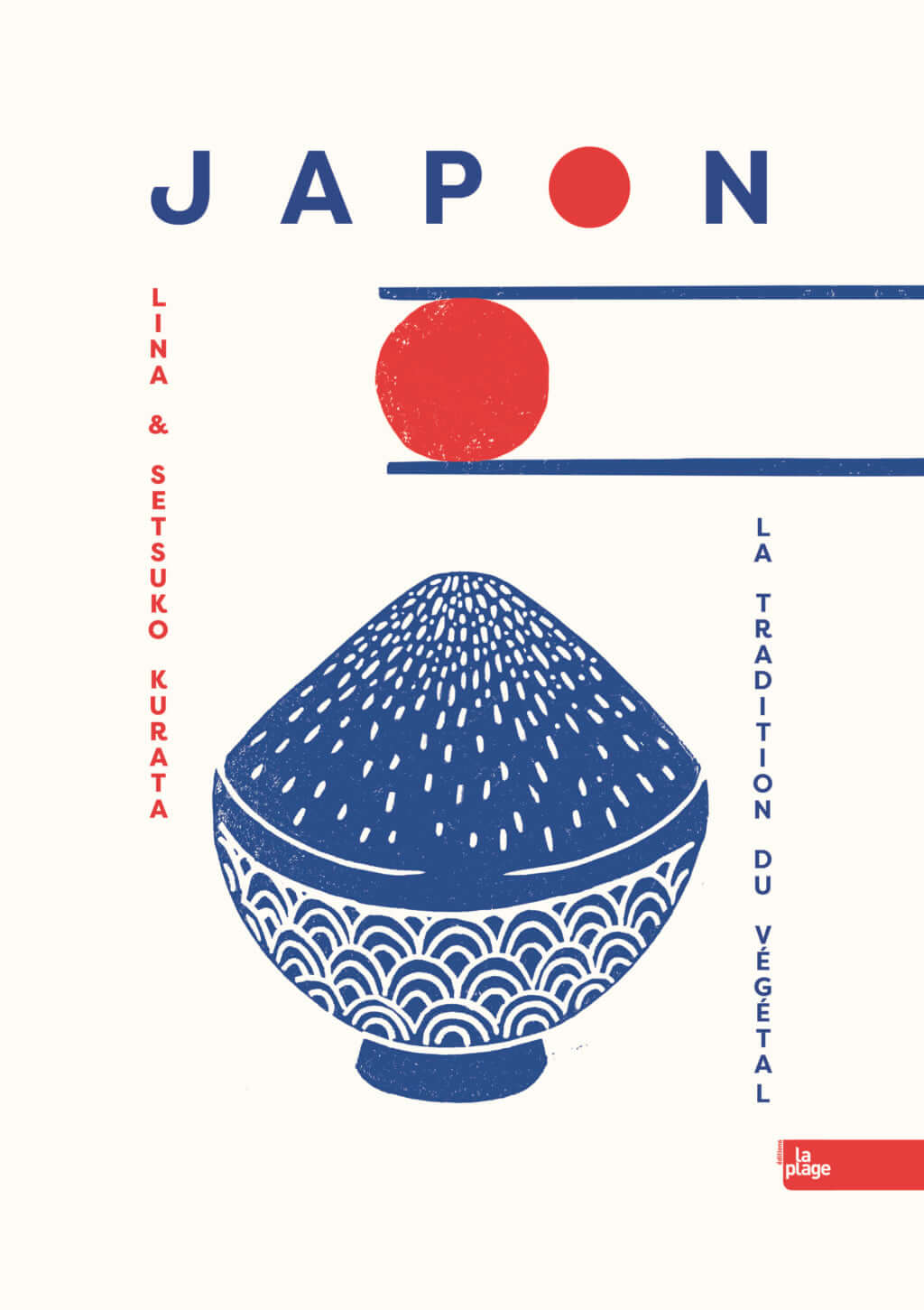Vegan Recipe for ‘Fu’ and Potato Stew by Lina and Setsuko Kurata
This dish, typically made using beef, has been reimagined by the authors to create a vegan version that contains wheat gluten instead.

© Lina Fievet
When tending towards vegetarian cuisine, it is not strictly necessary to get rid of all recipes containing meat. Setsuko and Lina Kurata, authors of the book Japon, la tradition du végétal (‘Japan, the Vegetable Tradition’), prove this in the recipes they have created according to the seasons.
This is the case for this fu and potato stew, known as nikujyaga in Japon. Niku means ‘meat’ while jyaga is an abbreviation of the word jyaga-imo which means ‘potato’. Thus, the reader soon understands that this is not a dish that could appear in its usual form in a vegetarian cookbook. The mother and daughter therefore reinvented this winter dish they love in a meat-free version in which fu, wheat gluten that is mainly used in Buddhist cuisine, replaces beef, without losing any of its comforting side.
Serves 2
Ingredients
100 g onion
90 g carrot
600 g potatoes
1 tbsp vegetable oil
250 ml dashi
100 g konjac noodles
50 g fu
5 tbsp mirin
2 tbsp soy sauce
Method
Peel and cut the onion into thin slices. Wash, peel and cut the carrot and the potatoes into small pieces (around 2 cm).
Put the oil and onion in a saucepan and brown for 2 minutes over a low heat while stirring. Add the carrot and potato and cook for 5 minutes, stirring regularly. Add the dashi and cook over a medium heat with the pan half-covered.
As soon as the dashi begins to boil, reduce to a low heat and cover fully. Cook until the vegetables are soft. Add more water if necessary.
Rinse the konjac noodles under water briefly. Add the konjac noodles and the fu to the saucepan and cook for 5 minutes.
Add the mirin and simmer for 5 minutes with the pan covered. Add the soy sauce and cook with the pan covered for 10 minutes over a low heat. Taste. If you want a sweeter flavour, add more mirin. If you want a saltier flavour, add more soy sauce.
Japon, la tradition du végétal (‘Japan, the Vegetable Tradition’) (2021), a recipe book by Setsuko and Lina Kurata published by éditions La Plage (not currently available in English).
Setsuko and Lina Kurata are mother and daughter. They created Japon, la tradition du végétal as a joint work that combines their own recipes with those of Setsuko’s mother (Lina’s grandmother) to produce a digest of three generations of family recipes. Japon, la tradition du végétal is their first book.

© Éditions La Plage
TRENDING
-
Ishiuchi Miyako, A Singular Perspective on Women
Recipient of the 2024 Women in Motion Award, the photographer creates intimate portraits of women through the objects they left behind.

-
Recipe for Ichiraku Ramen from ‘Naruto’ by Danielle Baghernejad
Taken from the popular manga with the character of the same name who loves ramen, this dish is named after the hero's favourite restaurant.

-
Namio Harukawa, Master of Japanese SM Art
'Garden of Domina' offers a dive into the world of an icon of ‘oshiri’, whose work has now reached a global audience.

-
The Tattoos that Marked the Criminals of the Edo Period
Traditional tattoos were strong signifiers; murderers had head tattoos, while theft might result in an arm tattoo.

-
The Emperor of Japanese Porn is Now the Star of a Netflix Series
Deliciously funny, The Naked Director especially succeeds in reviving the atmosphere that was so characteristic of 1980s Japan.





